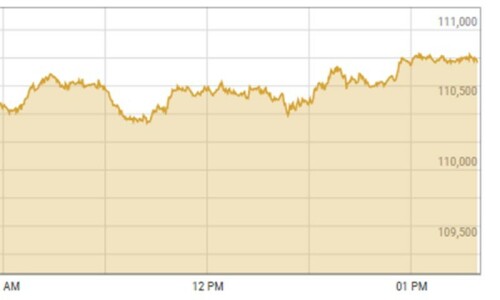Persuasion

As far as synopses go, the one offered by Netflix does an excellent job in telling you Persuasion’s story — maybe even persuading you in seeing the film.
It goes like this: Living with her snobby family on the brink of bankruptcy, Anne Elliot (Dakota Johnson) is an unconforming woman with modern sensibilities. When Frederick Wentworth (Cosmo Jarvis) — the dashing suitor she let get away — crashes back into her life, Anne must choose between putting the past behind her or listening to her heart when it comes to second chances.”
While I am a sucker for adaptations of classic literature, especially of Jane Austen, whose material is often an ideal go-to source for movie versions, this version of Persuasion felt off.
From the production, to the casting, everything and everyone — including a late arrival of Henry Goulding, Richard E. Grant’s turn as the patriarch of Anne’s family — is just okay, in the way amateur theatre, with its burning ambition to trump conventions, is often just okay.
Persuasion’s creative decisions stop it from realising its own potential while The Black Phone is a minor masterpiece of a thriller
As if seeing kids putting on their first serious show, by deliberately keeping to conventions yet still doing their best to forcibly stuff in newfangled ideas (none of them are fresh, by the way), one is witness to a lot of wasted potential during the 107-minute runtime.
Anne, like a lot of smart, sharp, inherently immature young women who have made their way over to movies from literature, has a toned-down, fourth wall-breaking attitude. She winks, nudges and gives knowing looks to the viewers with whom she feels she can share her sorrows. What she doesn’t know is that to us she’s an acquaintance who thinks she’s a friend. If she were a reality, then she would be the person whose all-knowing glances you look away from in parties.
Swiping Enola Holmes’s fourth wall-breaking internal disclosures (who is not a Jane Austen creation by the way), the toned-down ambience of Joe Wright-directed Pride and Prejudice, and the colour codes and general similarities of the Anya Taylor-Joy starrer Emma. (yes, the film inexplicably had a full-stop at the end of its title), we have a strange chimaera in our midst, whose creative decisions stop the film from realising its own potential.
Written by Alice Victoria Winslow and Ron Bass (The Joy Luck Club, My Best Friend’s Wedding, Sleeping with the Enemy, Entrapment and the Academy Award winner for Rain Man), directed by Carrie Cracknell, Persuasion is rated appropriate for ages seven and up. The film streams on Netflix
The Black Phone

In the nail-biting, eyes-glued-to-the-screen thriller The Black Phone set in 1978, Ethan Hawke plays ‘The Grabber’, a part-time clown who leaves black balloons at the scene of the crime after abducting school-going boys.
Capturing the boys one at a time, he throws them into a large vacant room with a bed bolted to the floor, and a window so high up that their highest jumps can’t reach it. If they try to escape — and that is what The Grabber wants — then the boys are physically beaten and mentally abused.
The room has a black phone, whose line hangs disconnected, but whose rings are heard by both The Grabber and his latest victim Finney (Mason Thames) — an often-bullied elder brother of a much stronger younger sister (Gwen; Madeline McGraw), and whose drunk and abusive father is still beat up over the death of their mother whose gift of hearing the supernatural, he fears, might have seeped into his children.
It did, because Gwen sees visions and Finney is aided by the ghosts of the boys killed by The Grabber.
Knowing the premise and realising what the conclusion will be does not take anything away from the experience of this Scott Derrickson minor masterpiece.
Derrickson, who began directing with the direct-to-video Hellraiser: Inferno, has a handle on low-budget, contained thrillers that disguise themselves as horror films. He is like M. Night Shyamalan — but with a better career — acing The Exorcism of Emily Rose and Sinister, but bungling up big budget titles such as The Day the Earth Stood Still remake starring Keanu Reeves, and the Jerry Bruckheimer-produced, Eric Bana-starrer Deliver Us from Evil.
Derrickson’s one, lone, big-budget exception is pulling off a minor miracle writing and directing the first Doctor Strange film, and even from that film, you can guess he has a love for the genre…and maybe Ethan Hawke.
Erratic, somewhat confused, mostly chagrined and angry, The Grabber wears the mask of a Japanese culture-inspired devil at all times, but with Hawke’s masterful performance, you can make out a thousand nuances of internal conflict attacking or fueling the madman’s own delusions. You can do a character study on The Grabber and, at the same time, at the culmination of the film, you wish that the makers of The Black Phone will continue to expand Finney and Gwen’s story into subsequent parts…but only under Derrickson’s hand. This is one franchise you will wish to see, as long as it stays fresh.
Based on the short story by Joe Hill, and written for the screen by C. Robert Cargill and director Scott Derrickson, The Black Phone is inexplicably rated R (count it as PG-13). The film is released by Universal and is available to stream.
Published in Dawn, ICON, July 24th, 2022















































Dear visitor, the comments section is undergoing an overhaul and will return soon.